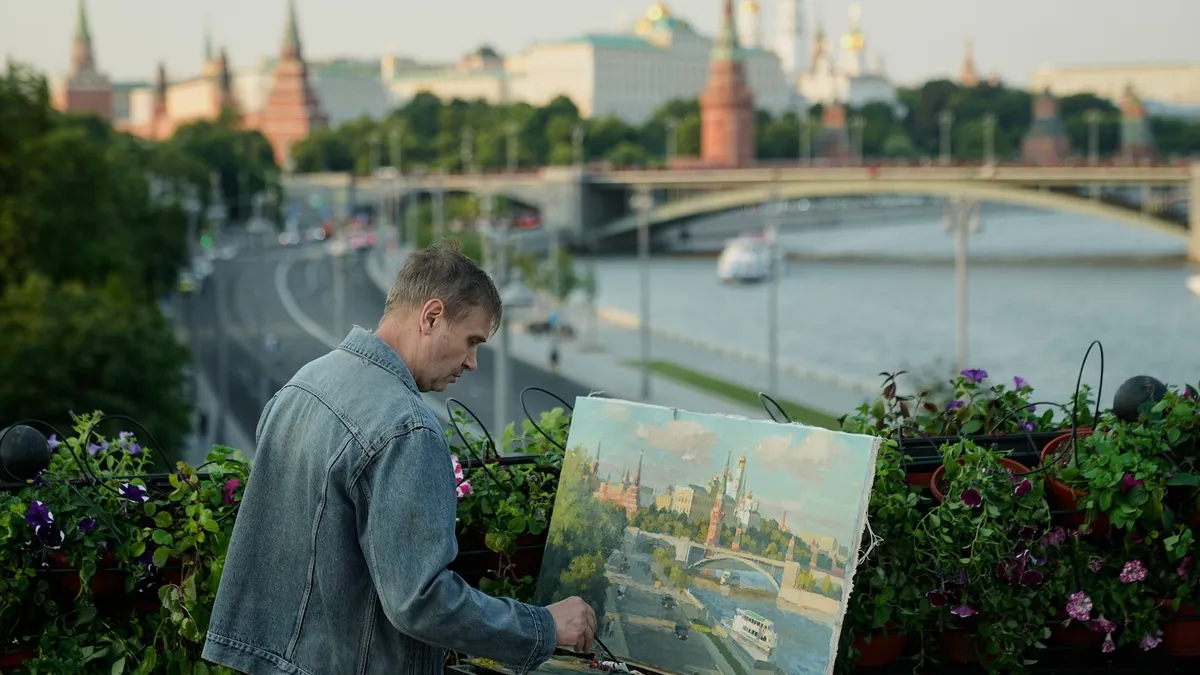
In a significant escalation of hostilities, at least 10 Ukrainian drones were intercepted and shot down as they approached Moscow during the night into Sunday morning. This information was confirmed by the city's mayor, Sergei Sobyanin, who also noted that temporary airspace restrictions were implemented at two of the capital's airports as a precautionary measure. Emergency services were promptly dispatched to the sites where the drones fell, ensuring the safety of residents in affected areas.
According to Russia's Defense Ministry, the drones targeting Moscow were part of a larger group, with a total of 67 Ukrainian drones reported shot down overnight. In the southern regions of Russia, Tula region governor Dmitry Milyaev reported a separate drone attack on the Azot chemical plant located in Novomoskovsk. This attack resulted in a fire caused by falling debris, injuring two individuals. Milyaev reassured the public that the situation was under control.
In retaliation, Russian forces continued their long-range strikes into Ukraine overnight. Ukraine's air force reported that they had intercepted or neutralized 40 drones and three missiles targeting their territory. The ongoing conflict has seen both sides ramp up their long-range strike operations, even as U.S.-brokered peace talks persist in an effort to resolve the ongoing conflict stemming from Russia's invasion.
Ukrainian President Volodymyr Zelenskyy addressed the situation on Saturday evening, emphasizing the urgent need to fortify the nation's air defense capabilities in light of Russia's ongoing missile and drone assaults. The northeastern city of Kharkiv, located just 19 miles from the Russian border, was among the cities attacked over the weekend, resulting in at least three fatalities and 23 injuries, according to local military administration reports.
Furthermore, Zelenskyy highlighted the necessity for "concrete signals" from the United States regarding the provision of air defense systems. He expressed gratitude to European nations for their support but stressed the importance of joint production of air defense systems and missiles, deeming it essential for the security of Europe.
Zelenskyy and his administration have portrayed Russia's escalating attacks and the rising civilian casualties in Ukraine as evidence that Russian President Vladimir Putin is not sincere in his willingness to negotiate a peace agreement. Following last weekend's covert operation by Ukraine that involved over 100 drones attacking strategic bomber bases deep within Russia, Moscow has vowed to retaliate. Ukrainian officials have celebrated this operation as a significant success.
In his statements, Zelenskyy condemned Russia's recent strikes on Ukrainian cities, insisting they cannot be justified as retaliation. He urged Western allies to increase pressure on Russia to revise its maximalist demands that amount to the capitulation of Ukraine. He asserted, "No form of pressure on Russia can be eased," and emphasized the importance of holding Russia accountable for its actions.
As the conflict continues, Zelenskyy remains adamant that increased pressure, particularly through sanctions on Russian oil and trade, is essential to compel Russia to engage in realistic negotiations. He articulated the belief that the path to peace lies in a firm stance against Russian aggression, stating, "Russia must end this war that it started." The situation remains dynamic, and both sides are preparing for further escalations in the conflict.